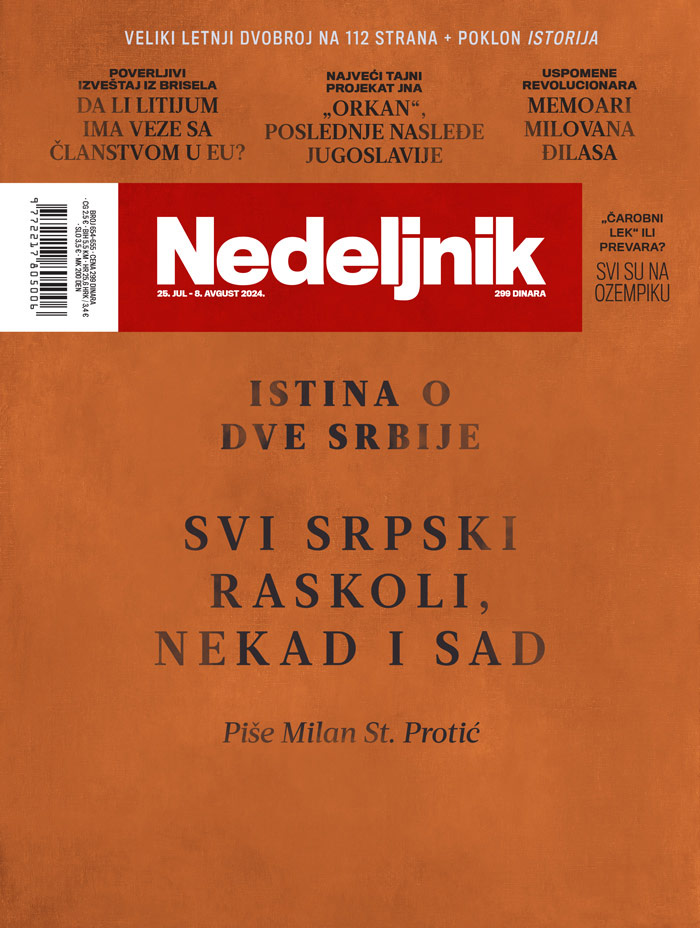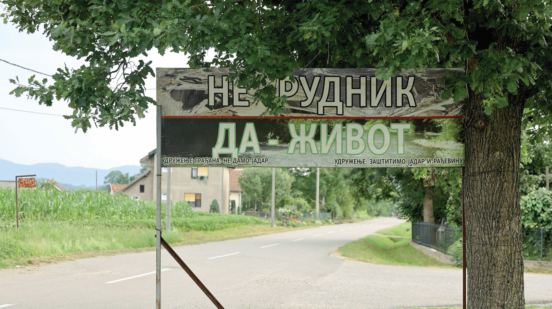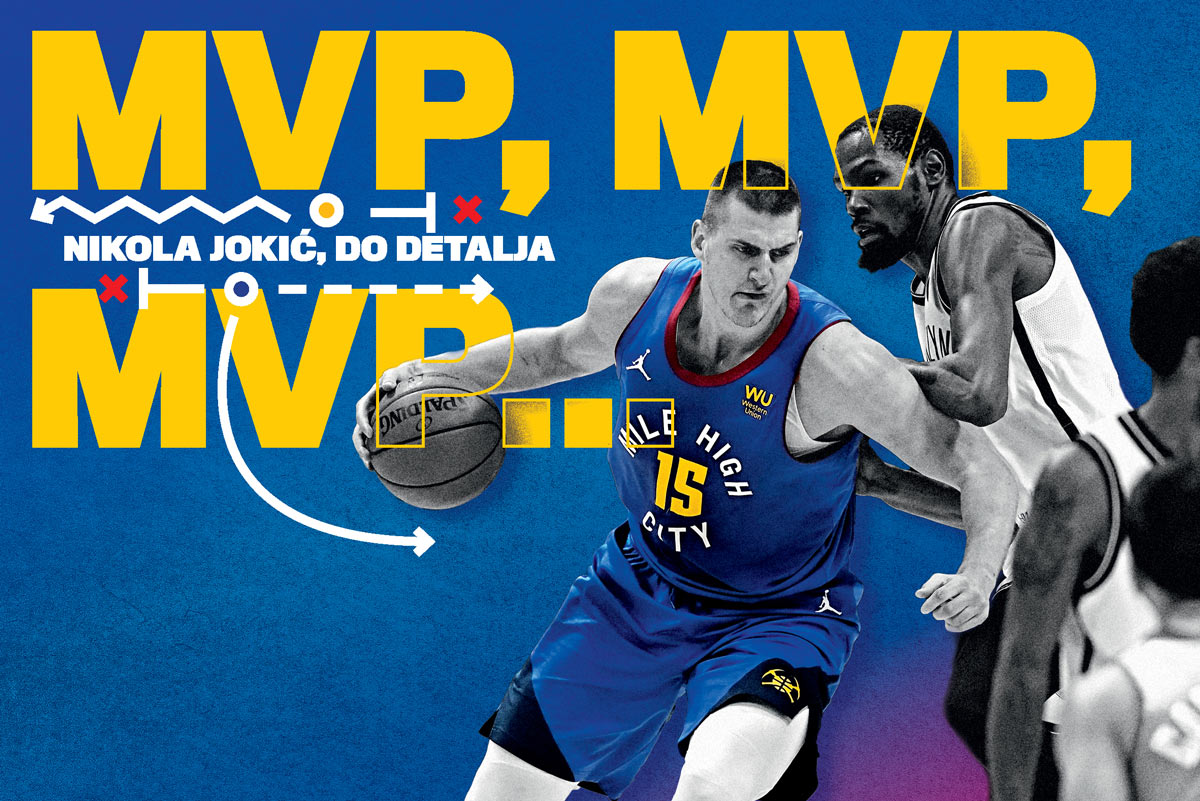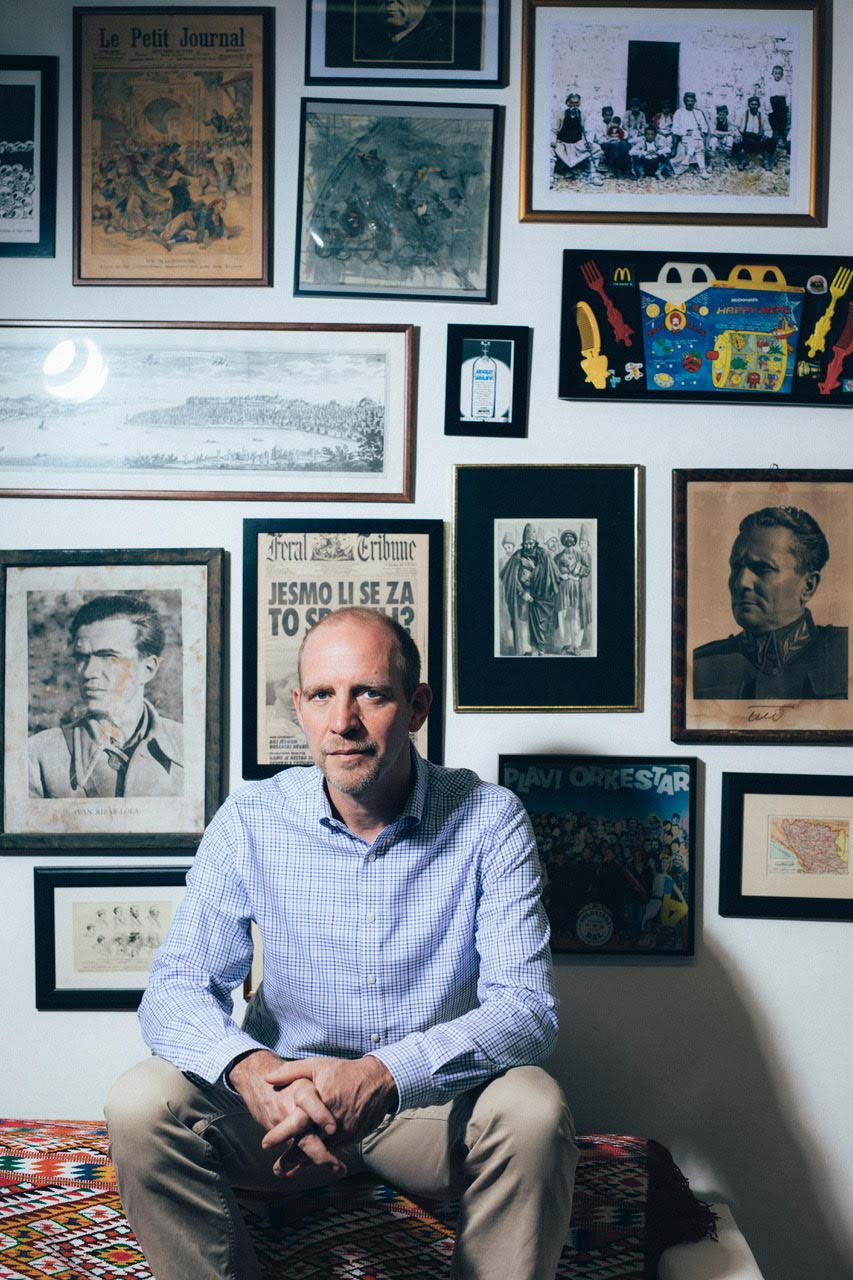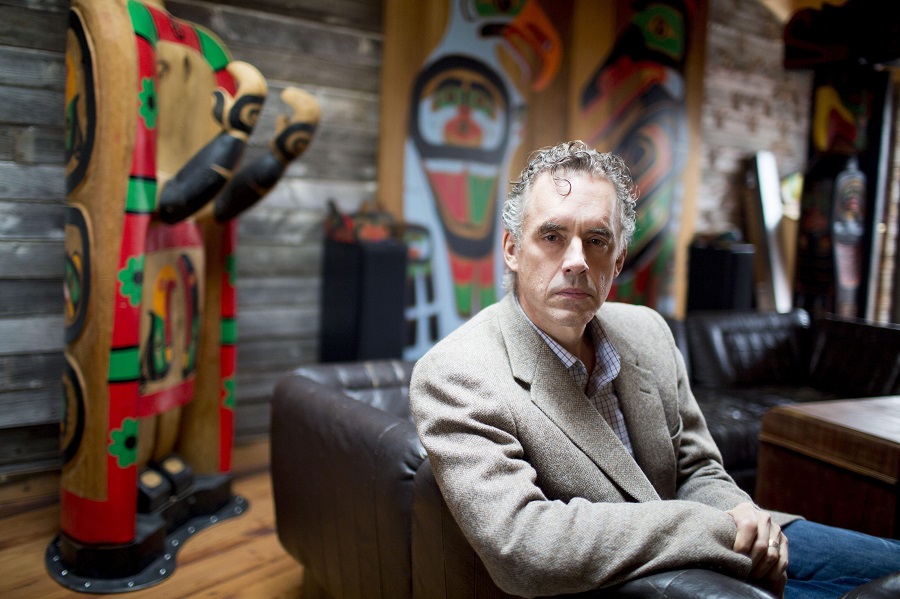
Jeff Julian is the member of US national swimming team. On World Championship in Sicily, he won the silver medal by swimming the butterfly stroke. Today, he is one of the best known coaches, in Pasadena. His son has recently competed for the national team for the first time, in Naples, Italy.
In January 2015, when he was 39, he heard the worst diagnosis. Lung cancer, stage 4. He never smoked.
The prognosis was 6 months to a year.
For cancer patients in terminal stage it means just – that. But, he was looking for hope.
His doctor realized that there is a gene mutation that may be attacked…
The rest is history. Today, Jeff Julian has got his disease under control. He trains every day.
He is in a great mood as he stands in front of journalists from the whole world on an exclusive event in Boston organized by Roche and Foundation Medicine.
And he is the news himself.
„Hope is the most important thing for a patient with tumour, and the patient must never be without a plan“, explains Julian. „I was lucky to have doctors who believed in me, and I believed in them. And after a week of clinical therapy I did not feel a thing. It was like a cold resolved. The therapy lasted for 12 weeks, and I got time. Cancer care is just buying time, anyway. If you do not have an answer today, you will have it tomorrow“, he continues.
Next to him is doctor Susan Campos, from Harvard Medical School. She says: „The worst thing in oncology is communicating bad news, but there is nothing better than communicating the good news“.

Are we there yet? Have we reached the stage in which good news is heard in oncology, too?
Everyone attending the exclusive media event “Transforming cancer care, advancing personalized medicine and genomic researches” could get that impression.
Like we are on the verge of something big. The Holy Grail. 21stcentury medicine.
Imagine a world in which every patient gets the most appropriate personal care. Or is it already happening?
What is personalized medicine anyway? And what is immune therapy for which the Nobel Prize in Physiology or Medicine 2018 was awarded jointly to James P. Allison from University of Texas and Tasuku Honjo from Kyoto University?
They were awarded for the research of the immune system, that lead to medicines that have completely changed the way of treatment for (some) lethal cancers. They are not the only ones that have contributed to breakthrough in the methods of treatment over the past years, but this specific research helped one of the best known cancer patients and significantly prolonged his life – former US President, 94-year-old Jimmy Carter. So much that he was told three years ago that he didn’t have to undergo treatment anymore, as his multiple, mostly fatal metastases had completely disappeared.
It seems that with every following year we are getting closer to what became the Project of the Century for the US and the world. Can cancer become something like the chronic virus stopped in body, or we are on the verge of finding the Holy Grail against the most severe disease in the history of mankind?
Some studies of the last generations of different therapies have already shown incredible results. Immune therapy is basically simple when explained to you by the ones that have put a lot of effort into decoding it. It is the way to initiate the ability of the immune system to detect and destroy the intruder. This is how our body fights bacteria and viruses. But it does not do it in case of cancer, that occurs when healthy cells mutate and thus overpower the other cells participating in body’s defence against the intruder.

These therapies, administered through medicines or intravenously, drive the immune system to fight cancer cells, whereas it keeps the healthy ones intact.
Our immune system checks everything, like a scanner at the airport, and the so-called T-cells scan the cells with their receptors to recognize, and then memorize the difference between normal and altered cells. This is how “immunity is acquired”. The more mutated the cell, the easier it is to detect it. Until recently, we didn’t understand why T-cells detect cancer cells, but don’t destroy them. Since T-killer cells are extremely strong, they have a kind of brake that prevents them from attacking healthy tissue, too (when autoimmune diseases occur). Science has shown that PD-L1 molecule is to blame, as it can be found on the surface of the cancer cells, “disguising” them. That molecule blocks the T-cell from doing its job. Scientist thus designed the way to activate T-cell and prevent communication between molecules that block its action in case of cancer. In that case, T-cell recognizes the intruder and can destroy it.
Foundation Medicine is a world-leading molecular insights company, collecting genomic researches, connecting physicians and their patients to the latest cancer treatment approaches. They work with 51 pharmaceutical companies worldwide to advance new therapies. And shorten time. The third pillar is the global scientific community that is supposed to accelerate things, to reach what we call transforming cancer care. In five years, medicine will be completely different from what it is today
One of the ways in which immune therapy is applied is to extract some immune cells from a patient, change them genetically to kill cancer, and then return them to bloodstream. This approach led to long-term improvements in some types of cancer. Another approach uses mass produced medicines that are not customized to individuals, but release immune cells for fighting cancer by blocking the mechanism cancer uses to disable the immune system.
Although immune therapy is promising, it does not result in success in all patients, and scientists are trying to find out why.
But now everyone joined forces to decode it. Foundation Medicine is a leading Foundation Medicine is a world-leading molecular insights company, collecting genomic researches, connecting physicians and their patients to the latest cancer treatment approaches. They work with 51 pharmaceutical companies worldwide to advance new therapies. And shorten time. The third pillar is the global scientific community that is supposed to accelerate things, to reach what we call transforming cancer care. In five years, medicine will be completely different from what it is today.
Advancement in genomic testing leads to personalized care and helps doctors understand each unique type of cancer. The problem is that even in the developed world, as much as 62 percent of patients that undergo molecular testing do not receive the therapy they need.
Every week, Foundation Medicine receives 2,500 samples for testing. Samples are sequenced and mutations are established at the known 400 genes in which cancer is created. Results are returned to physicians with genetic findings and therapies. Clinical trials in the USA have more than promising results.
And what better proof than Jeff Julian who goes to the swimming pool every day.
Every little change on our genome has a huge impact. Standard medicine is not enough. Lecturers clearly explain to us that when you change only one letter, you get a new sentence. That change on genome creates cancer.

Causes vary. Smoking is one of the main ones and it accelerates gene mutation.
FDA, or US Food and Drug Administration, has approved 70 targeted therapies up to this day. Clinical studies are performed on more than 600. Still, every cancer is unique, and in each case we have to understand exactly what led to mutation.
Suzanne McClure, Editor, Genome Magazine, explains how she survived breast cancer that was completely the same as the one her best friend had. They had the same care, too. Today, she is alive and healthy, and her friend passed away after six months.
Suzanne dedicated her life to that.
The same as Brian Olson, surfer and musician, who was diagnosed at the age of 44: stage 4, prostate cancer, with metastases.
Sequencing became his Holy Grail, too. Today he is selling “Sequence ME“ T-shirts that were best-selling in the USA last year.
Of course, all proceeds are used for testing of other patients.
This is a joint battle. Genetics shows who can receive therapy. After all, simply put, cancer is a genomic disease.
Raising awareness on precise medicine and genomic researches, plus the precise medicine, lead to revolution in fighting against this wicked disease.
Are patients ready for such decisions? How much does it cost? The price of testing in the USA at present is USD 5,800 , but because of subsidies, patients are charged USD 3,500.
It’s the new hope of medicine. Only two biomarkers help see whether the immune therapy will be successful.
The US is leading in this field, although there has been a major breakthrough in Germany over the past few years.
Vivienne Parry, author of the legendary BBC TV scientific programme Tomorrow’s World says that in a few years, apart from Brexit, David Cameron will also be remembered for initiating the 100,000 Genomes Project. His child had died of a rare disease, and that’s why he advocated for that as the Prime Minister. This year the objective was met. The 100,000 Genomes Project was implemented in 90 British hospitals, 25,000 genomes were tested to tumours, and 76,000 to rare diseases.
A large Israeli Mosaic Project (Psifas, in Hebrew) was presented in Boston, too, as a platform for genetic and clinical studies based on volunteers who should collect 100,000 cancer patients for genetic research.
Israel is ideal for that because of diversity of population, but also because of the perfect healthcare system covering 98 percent of population.
The last ally in molecular research are computers. “A PC plus a human being, excellent team“, states one of presentations. People monitor processes, but a computer code is fundamentally better in detecting all anomalies. Targeted therapies grow every day. The aim is to create a single molecular test applicable to all. And a simple report.

That is the medicine of future, as presented at the largest conference, at the centre of research, in Boston. Identification of changes on genome leads to rapid development of medicines appropriate for genes.
There are 68 approved targeted agents at present, with more than 600 in clinical trials.
Personalized diagnostics is the future. When the primary tumour is not known, survival is 3 to 5 percent, but molecular profiling changes that fundamentally.
„Science has never been more promising, but we have to work together, and find a business model that increases the pace of research“, says Harvard professor, dr. Raju Kucherlapati. 60 countries are already participating in this project, from Argentina and Brazil to Turkey, Austria, Switzerland, Italy, Spain, Germany and UK in Europe.
If I had my say in this county, the only thing I would do is to joint this project. It is the most important project in the history of mankind and its fight against the gravest disease.
We are on the verge of something big. And everybody in Boston hopes that Jeff Julian, member of the US national swimming team, will live to witness it, too.
Because in five years, medicine will be completely different from what it is today…





